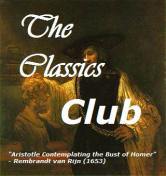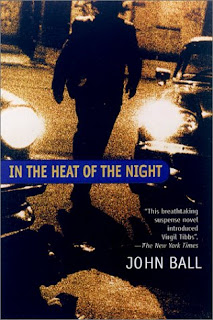This was a difficult book, in some ways. It contains two unhappy stories intertwined with each other, and I worried for a long time that at least one of them would not be resolved happily. But I trusted Reay to at least deliver a satisfying ending, even if it was not exactly "happy," and I did not trust in vain.
In the present day, Caroline Payne is contacted by an old college friend, Mat Hammond, who has written an article about her grandmother and great-aunt and their family history during World War II. Caroline is hurt and angered by the article, and convinced it's not entirely accurate. Her relationship with her parents is distant, bordering on estranged, but her brother convinces her to go to their home in London and learn more from her mother there.
Caroline convinces Mat to postpone publishing the article until she can learn the truth, and off she goes to learn the real story about her grandmother and her twin sister, who may or may not have run away with a Nazi during the early days of WWII.
Through diaries and letters, Caroline learns a startling truth about her family history -- a truth that even her grandmother and grandfather didn't really understand. Along the way, she helps her family heal and begin to grow closer again. Also, she and Mat tentatively consider resuming the relationship they'd let dissolve back during college.
By the end, everyone is in a much healthier and happier place, but boy, was most of this book rough!
I'm sorry to see that Katherine Reay has continued to move away from writing explicitly Christian fiction, though. You can't even call The London House faith-based fiction -- it's simply clean and wholesome, and that's all. Which is not bad, but not as awesome as I think it could have been. She talks about absolute truth existing, outside of people's perceptions and decisions and whims, but she never leads the discussion to where that absolute truth comes from. The closest she gets is quoting C. S. Lewis a bit. What a missed opportunity.
Particularly Good Bits:
I realized Jason and I shared something in common--we needed people in our lives with vibrancy and color, perhaps because we had somehow and somewhere lost our own (p. 44).
"When something bad happens," she continued, "it's easy to blame someone else, and in some cases maybe it is their fault, but that doesn't matter. Not in the end. What does matter is how long we hold on to that hurt or that anger. We can magnify the pain, making it worse and worse until it devours us, or we can forgive it and get on with life" (p. 137).
I wondered how much my dad had missed, how much I had missed, by focusing on what was absent rather than what was in front of us (p. 152).
I need to forgive Mother and Father for not being who I needed them to be. That sounds self-absorbed and patronizing as well, but I don't mean it that way. I simply mean they strive to be the best parents they can--I see that now--and simply because it's not what I wanted does not mean their efforts aren't right and true (p. 236).
It is wrong to believe my perception is the only reality, and a true one at that. There are absolute truths in this world, Margo, and I am slowly learning I do not determine them (p. 236).
If This was a Movie, I Would Rate It: PG-13 for wartime violence and discussion of an unmarried couple spending the night together (not shown, only discussed).
This has been my 20th book read off my TBR shelves for #TheUnreadShelfProject2022.















